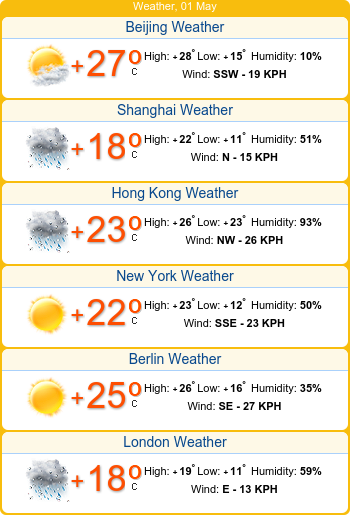Steps to Take If a Utah Roofer is Injured at the Job
If roofing contractors injure themselves while working on your property, you can be held liable, especially if they don’t have Utah roofers insurance coverage. This is what’s known as premise liability, a kind of liability that holds property owners responsible and accountable for resulting damages that happen on it. So as a property owner in Utah, what do you need to do when a roofing contractor gets hurt on your property while they’re working? Know What Needs to be Proven In Utah, plaintiffs need to prove certain elements before a court can validate an injury claim against property owners. Some of the things they need to prove include: That you rent, lease, or own the property That you’re using the property negligently The roofer actually suffered injuries That your negligence played a significant role in the cause of the injury The Statutes of Individuals Involved There are different categories of individuals on your property, according to the law. It’s vital to differentiate and understand these types because it’ll help determine whether you’re liable. This will give you an idea of what steps you need to take. These categories of individuals include: Invitee- Someone who enters property that’s open to the public. Licensee- Someone who enters with express and implied permission. Trespasser- Someone who enters without consent, invitation, or permission from the property owner. Social Guest- This is a welcome visitor, and your roofing contractor may fall under this. Property owners need to ensure that their premises are free from hazardous situations and are well maintained. It’s your responsibility to offer your roofing contractor a safe environment to work in so that accidents can be avoided. Contact a Lawyer If a roofing contractor gets hurt on your property, regardless of whether they’re a trespasser, licensee, or invitee, you should seek the assistance of an attorney to help you explore all your available options and find out whether you’re liable or not. Any OSHA regulation violation is usually seen as breaching the duty of care. This can be in the form of inaction or action. For example, a roofing contractor can be liable for working on an unsafe scaffold. Additionally, the roofing company can also be held liable for neglecting to properly train their workers concerning safe lifting practices. Some of the most common types of damages involving roofing construction injury claims include: Medical expenses and physical therapy Lost income Reduced quality of life Pain and suffering Takeaway Most OSHA violations usually occur on construction sites. Even more, OSHA reports that 10% of construction workers get hurt annually on the job. When a roofing contractor is hurt, they might not be able to work because of this. Make sure you do everything to help prevent this from happening. However, if they do get hurt, then your best bet would be to look for a lawyer to help you navigate any potential claim. Hopefully, they can help you get off the hook and avoid liability of any kind.

If roofing contractors injure themselves while working on your property, you can be held liable, especially if they don’t have Utah roofers insurance coverage. This is what’s known as premise liability, a kind of liability that holds property owners responsible and accountable for resulting damages that happen on it.
So as a property owner in Utah, what do you need to do when a roofing contractor gets hurt on your property while they’re working?
Know What Needs to be Proven
In Utah, plaintiffs need to prove certain elements before a court can validate an injury claim against property owners. Some of the things they need to prove include:
- That you rent, lease, or own the property
- That you’re using the property negligently
- The roofer actually suffered injuries
- That your negligence played a significant role in the cause of the injury
The Statutes of Individuals Involved
There are different categories of individuals on your property, according to the law. It’s vital to differentiate and understand these types because it’ll help determine whether you’re liable. This will give you an idea of what steps you need to take.
These categories of individuals include:
- Invitee- Someone who enters property that’s open to the public.
- Licensee- Someone who enters with express and implied permission.
- Trespasser- Someone who enters without consent, invitation, or permission from the property owner.
- Social Guest- This is a welcome visitor, and your roofing contractor may fall under this.
Property owners need to ensure that their premises are free from hazardous situations and are well maintained. It’s your responsibility to offer your roofing contractor a safe environment to work in so that accidents can be avoided.
Contact a Lawyer
If a roofing contractor gets hurt on your property, regardless of whether they’re a trespasser, licensee, or invitee, you should seek the assistance of an attorney to help you explore all your available options and find out whether you’re liable or not.
Any OSHA regulation violation is usually seen as breaching the duty of care. This can be in the form of inaction or action. For example, a roofing contractor can be liable for working on an unsafe scaffold.
Additionally, the roofing company can also be held liable for neglecting to properly train their workers concerning safe lifting practices.
Some of the most common types of damages involving roofing construction injury claims include:
- Medical expenses and physical therapy
- Lost income
- Reduced quality of life
- Pain and suffering
Takeaway
Most OSHA violations usually occur on construction sites. Even more, OSHA reports that 10% of construction workers get hurt annually on the job. When a roofing contractor is hurt, they might not be able to work because of this. Make sure you do everything to help prevent this from happening.
However, if they do get hurt, then your best bet would be to look for a lawyer to help you navigate any potential claim. Hopefully, they can help you get off the hook and avoid liability of any kind.












